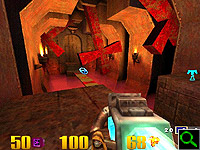The conflict between editors and freelance writer is as old as time. Stereotypes abound on both sides of the fence, and if you talk to folks from either camp you'll most certainly hear all of them laid out in glorious detail. That said, when you begin freelancing keep, one thing in mind -- the editor is always right.
That's a pretty bold statement (and will undoubtedly irritate my freelancing friends), but it's the truth. The mistake most freelancers make is that they forget they are a hired contractor; in other words, an employee. Just like every other working relationship there is a supervisor and a subordinate, and in this case, the editor is the supervisor. If they specify a specific word count, deadline, or other specifics, give them exactly what they've asked for. It's not the freelancer's place to interpret instructions.
With that in mind, here are some areas that most often cause conflict between freelancers and editors. For each, I've included the reasons why the editor has made those instructions.
Word Counts: Oddly enough, the issue of word counts (especially on the Web) is a hotly contested issue. I can't tell you how many times I've requested a 700-word review and gotten an 1100 word review. The freelancer will reason that they needed the extra space, which is a load of hooey. The majority of print reviews are one page, which is 600 to 700 words. If those writers can do it, so can you.
So why are word counts important? Often it's a matter of space (as is the case with magazines), but more often it's a case of editorial style. Longer reviews tend to be sloppy and unfocused while shorter reviews force the writer to be clear and concise. And remember, if you turn in a review that goes over the word count, the editor will have to do heavy editing to bring it down to the proper length.
Turn in complete work: Too many freelancers think that the review begins and ends with the text. That's not the case. If the layout of the magazine/Web site requires box-outs or side-bars, include those. Always include screenshots with captions. Let me repeat that -- with captions. When used properly screenshots become another part of the review and an opportunity to illustrate your points.
And always, always, always take screenshots from the entire game. Don't grab ten shots from the first twenty minutes of the game. Not only does this give the impression that you didn't play the game for an extended period of time it also doesn't serve any benefit to the reader.
Know the Publication: This seems fairly obvious, but most freelancers totally ignore this aspect of the review process. If you want to write for a Website or a magazine, you need to know that pub's style and be able to write in that style. You need to know their likes and dislikes.
If you want to write for a magazine that doesn't use humor in its editorial, do not submit something to them that uses humor. A large part of an editor's job is to maintain their pub's editorial voice. If they constantly have to re-write your work because you're not writing in that voice, you're creating additional work for them and they'll stop using you.
Review Scores: Most of the major conflicts between editors and freelancers arise from review scores. For the most part these problems are the result of an editor changing a review score, which most freelancers feel is a professional slap in the face.
What most freelancers don't realize is that the editor, in addition to making sure that the review is fair and balanced, also acts as a continuity expert. If Game X gets three stars, for example, and a freelancer turns in a review of Game Y that says it is better than Game X, the latter game needs to get a higher score (or at least the same score). Too often most freelancers wouldn't even be able to tell you what score Game X received.
Next: Act Professionally...





